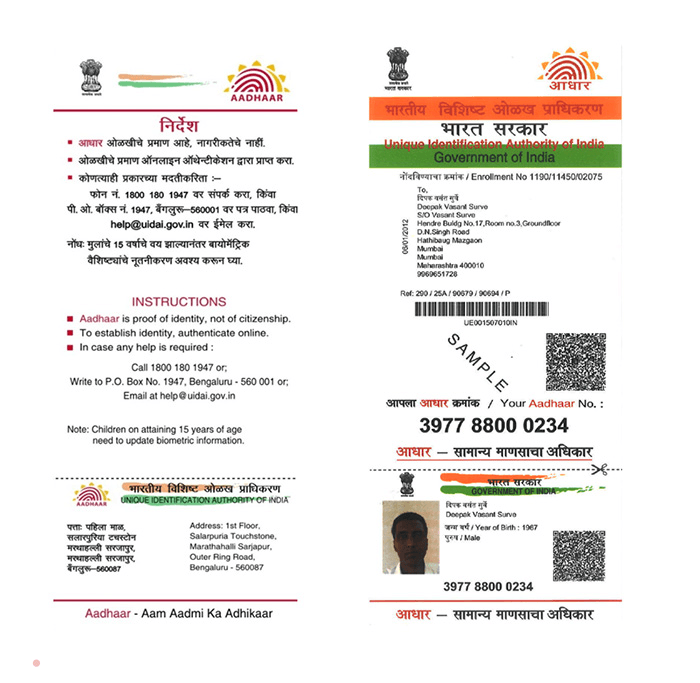From Aadhaar to Bank Rules: 7 Big Financial Changes Taking Effect November 1, 2025
Stay updated on the '7 crucial financial changes' starting November 1, 2025, including new Aadhaar update rules, banking nominations, GST slabs, pension deadlines, and card fee changes impacting every Indian’s wallet.
From Aadhaar to Bank Rules: 7 Key Financial Changes Starting November 1, 2025
As November marks a fresh phase in India’s regulatory landscape, seven major financial changes will roll out from November 1, 2025, impacting millions of citizens.
These updates cover Aadhaar, banking procedures, GST regime, pensions, card transaction fees, and more. Every consumer, investor, and bank account holder should be aware of what’s new, to avoid last-minute surprises and optimize financial decisions.
Aadhaar Update Charges: What’s New?
Starting November, the Unique Identification Authority of India (UIDAI) has announced a major relief for parents—mandatory biometric updates for children’s Aadhaar cards will be free for the next year.
Previously, updating biometrics for kids cost ₹125, but now this fee is fully waived. For adults, the Aadhaar update structure is now more streamlined:
Updates to name, address, date of birth, or mobile number: ₹75
Biometrics update (fingerprints or iris scans): ₹125
Additionally, the Aadhaar online update process has been reformed. Now, users can revise their address, date of birth, or name digitally, with no need for supporting documents, making things quicker and easier for all ages.
Banking Nomination Rules Simplified
A huge change awaits bank account holders. From November 1st, every customer can now nominate up to four people for a single account, locker, or safe custody item. Previously, the nomination process was restrictive and often led to ownership disputes after the account holder’s demise. The new rules also allow customers to assign shares or percentages of the entitlement to nominees and set successive nominations.
This reform aims to ease access to funds for families during emergencies and bring more transparency to bank operations.
GST Slabs Overhauled
The Goods and Services Tax regime is gearing up for a massive shakeup.
The four-tier GST structure (5%, 12%, 18%, 28%) will be replaced with a simpler two-slab system from November 1. Specifically:
The 12% and 28% slabs are being retired.
A new 40% GST rate will apply to luxury and sin goods.
This simplification is designed to benefit businesses and consumers by making India’s indirect tax regime more predictable and transparent.
Pension Deadlines and New Scheme Options
Retirees, pay attention! All central and state government pensioners must submit their annual Life Certificate to their bank branch by the end of November, or risk losing their pension benefits.
If you are planning to switch from the National Pension Scheme (NPS) to the new Unified Pension Scheme (UPS), this is also the time to get your paperwork done.
Missing these deadlines can result in suspension or delays in pension payments, so proactive action is essential.
SBI Card: Transaction Fee Changes
There’s an important update for SBI credit card users making payments for education or topping up digital wallets. From November 1, SBI cardholders will incur a 1% transaction fee on education payments made via third-party platforms like MobiKwik and CRED. Similarly, a 1% charge applies to wallet recharges above ₹1,000.
These new charges make it even more important for SBI users to track expenses and choose payment methods judiciously.
PNB Locker Rent Reductions
Punjab National Bank customers will benefit from revised locker rent charges.
The rent has been reduced and will apply nationwide, but activation of the new rates will begin after a 30-day notice period from the announcement, so customers should keep an eye on the official PNB website for updates. This revision seeks to make safe-keeping options more affordable and accessible.
Digital Convenience: Online Aadhaar Updates
A noteworthy addition is UIDAI’s move to allow digital Aadhaar updates without document upload. This ensures faster, more accessible changes, especially for those living in remote areas or busy urban centers, greatly improving user experience and inclusion.
Why These Financial Changes Matter
Each change introduced from November 1, 2025, is built to improve transparency, inclusiveness, and convenience for Indian consumers:
Children’s Aadhaar updates being free encourage timely compliance with biometric requirements.
Banking nomination reforms reduce future ownership distress and broaden family access to funds.
GST simplification means businesses can manage taxes and pricing more efficiently, making compliance easier for MSMEs.
Pension deadline reminders ensure retirees do not face payment delays due to missed documentation.
New card fees push users to reassess their payment strategies, potentially saving on unnecessary costs.
Quick Recap: 7 Financial Rules Changing November 1
| Change | Details & Impact |
|---|---|
| Aadhaar update charges | Free for kids; adults: ₹75 for info, ₹125 for biometrics |
| Online Aadhaar update | No supporting documents needed |
| Bank nomination rules | Up to four nominees, clear entitlements, successions |
| GST slabs revised | Two tiers, 40% rate for sin/luxury goods |
| Pension deadlines | Life certificate & NPS-UPS switch by Nov-end |
| SBI card charges | 1% fee for education (via apps), wallet recharge >₹1k |
| PNB locker rent | Nationwide reduction; effect after 30-day notice |
Conclusion
Understanding these regulatory updates is critical for every Indian. Whether you’re updating Aadhaar details, nominating loved ones in bank accounts, juggling pension plans, or just paying with your SBI card, informed decisions protect your finances.
Be sure to act before deadlines and review the full implications—adapt your habits, check new charges, and keep all documents ready for the smoothest experience as November 1 approaches.
